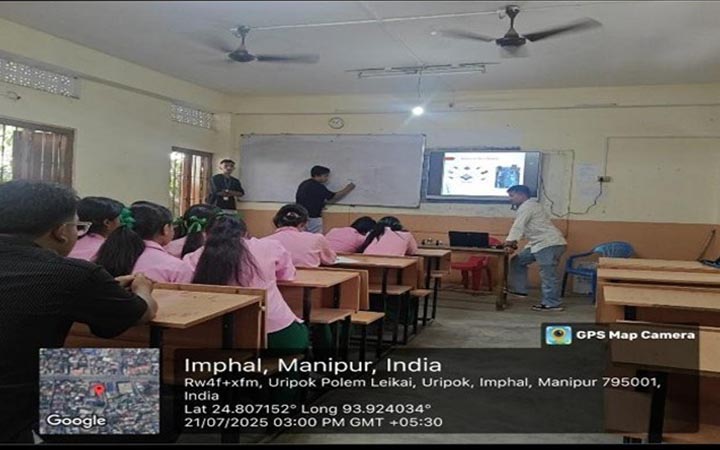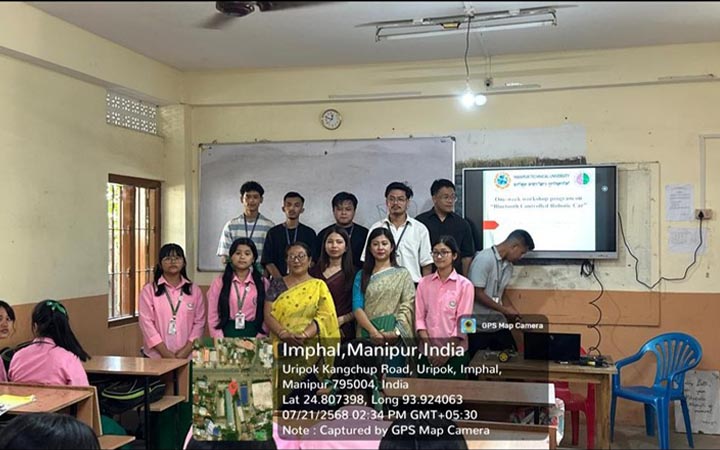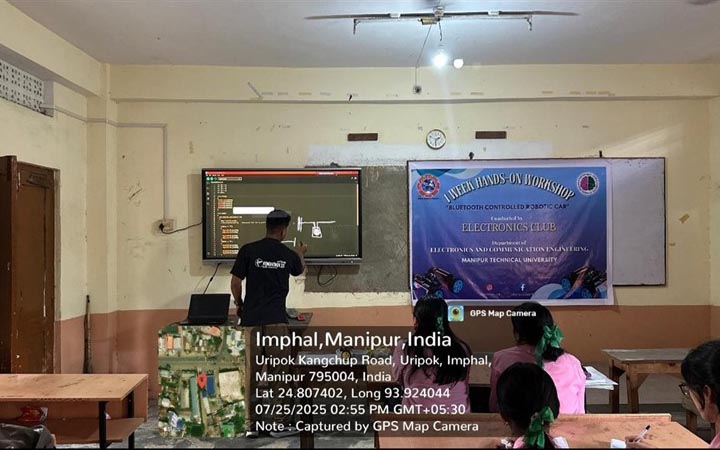Organised By: Electronics Club, Dept. of ECE, MTU
Date: 21st July – 26th July, 2025
Participants: Students of Class IX, X and XI
About the program:
The Bluetooth-controlled robotic car project served as the central theme of the workshop. It is a project that beautifully merges the fields of electronics, wireless communication, embedded systems, and robotics into a single learning experience. For the students, this was not just about assembling wires and components it was about bringing technology to life in a form they could control with their very own hands. The car was designed in such a way that it could receive wireless commands from a smartphone via Bluetooth, which were then interpreted by an Arduino Uno microcontroller. Based on those commands, the robotic car could move forward, backward, left, or right. This project was chosen for its balance: simple enough to be approachable for beginners, yet engaging enough to show the possibilities of real-world applications of embedded systems. By the end of the week, students began to appreciate how small modules, sensors, and lines of code can combine to create intelligent systems that mimic the technology around us—from automated vehicles to modern-day smart devices.
Objective:
The workshop was carefully structured to gradually guide students from basic electronics to a fully functional robotic car. The objectives were not only technical but also educational and personal: to build curiosity, teamwork, confidence, and problem-solving skills among young learners. Each day was planned to have a balance of theory, demonstration, and hands-on activities, so students could learn, observe, and apply their understanding step by step.
Outcome:
By the end of the workshop, students successfully transitioned from foundational electronics concepts to constructing and programming a fully functional robotic car. The structured progression enabled learners to:
- Apply technical knowledge in real-world tasks involving sensors, microcontrollers, and motor control.
- Enhance problem-solving skills through iterative design challenges and troubleshooting exercises.
- Develop teamwork and collaboration, working in groups to brainstorm, build, and refine their robotic systems.
- Build personal confidence and curiosity, as they saw their ideas come to life through hands-on experimentation.
- Integrate theory with practice, gaining a deeper understanding of electronics and robotics through balanced instruction and guided activities.
The workshop fostered a dynamic learning environment where students not only acquired technical skills but also grew as inquisitive and capable young innovators.



Last Updated on November 18, 2025 by University
